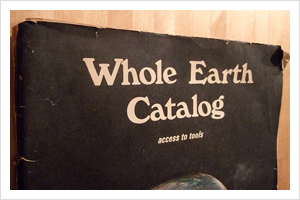 As the extraordinary tide of tributes to the life and work of Steve Jobs poured in these past few weeks, I couldn’t help wondering how Ted Kaczynski was taking the news.
As the extraordinary tide of tributes to the life and work of Steve Jobs poured in these past few weeks, I couldn’t help wondering how Ted Kaczynski was taking the news.
Kaczynski, aka the Unabomber, is serving a life sentence in a Colorado prison for conducting a murderous terror campaign he’d hoped would overthrow the kingdom of technology. There can be no more dramatic testimony to the failure of that campaign than the orgy of eulogies accorded Jobs.
Still, beneath their obvious differences, there’s a connection between Kaczynski and Jobs, not between them personally but between the archetypes they’ve come to represent.
The emotional reactions to Jobs’ passing made it abundantly clear that for many of us he’d come to symbolize the hopeful, life-affirming potential of the technical arts, in the process buttressing our faith in technology as a vehicle of human progress.
Kaczynski, by contrast, seemed a creature who’d emerged from the depths of our subconscious, a malignant manifestation of our fears that technology is not our friend but our enemy, and that our enemy is gaining the upper hand. Several commentators argued that Kaczynski disturbed us in part because we share a measure of his fear, and of his anger. Robert Wright wrote in Time magazine that “there’s a little bit of the Unabomber in all of us.” Daniel J. Kevles made essentially the same point in the The New Yorker; his essay appeared under the headline, “E Pluribus Unabomber.” Alton Chase, in his biography of Kaczynski, suggested that the Unabomber Manifesto articulated in hyperbolic terms the same sort of earth-friendly sentiments that embrace organic vegetables, camping, and the Prius. Minus the violence, Chase said, the Manifesto represented “nothing less than the American creed.”
That’s a vast overstatement, I think, but it does speak to the incongruity I’m driving at here. Jobs and Kaczynski represent the extreme poles of a deep-seated ambivalence in our attitudes toward technology. That ambivalence has been a part of American history, and part of the American psyche, since the beginning.
Thomas Jefferson set the pattern. Jefferson argued passionately for a national economy based on the wholesome integrity of the family farm. Dependence on manufactures, he wrote, “begets subservience and venality, suffocates the germ of virtue, and prepares fit tools for the designs of ambition.” But Jefferson also installed a host of inventions at Monticello and marveled at the wonders of industrial power in England. He loved nature but found it impossible to resist the fruits of abundance and power technology offered. Jefferson’s oscillations on technology, said the historian Leo Marx, represent “decisive contradictions in our culture and in ourselves.”
The same contradictions flavored the nation’s pursuit of Manifest Destiny. The dominant theme was that technology was the spearhead of civilization, the essential tool for taming the savage frontier. At the same time, a less confident undercurrent whispered that the possibilities of human freedom were vanishing even as the glories of nature were being despoiled. Contemporary accounts quoted by Henry Nash Smith demonstrate how both perspectives were projected onto the personality of Daniel Boone, who was alternately portrayed as “the angelic Spirit of Enterprise,” paving the way for decency and prosperity, or as a paragon of lonely rectitude, moving ever westward, ahead of the madding crowd. “I had not been two years at the licks [in Missouri],” Boone was said to have complained, “before a d–d Yankee came, and settled down within a hundred miles of me!!”
This discordant medley of enthusiasm and regret would subsequently be echoed in the frontier novels of James Fenimore Cooper and the Westerns of John Ford. In both, a self-reliant frontiersman typically served as a bridge between wild nature and community, often demonstrating that for all the gains civilization brought, something noble and pure was being lost. Still later the same sorts of tensions would appear in the public images of Thomas Edison and Henry Ford, who were revered not only for their achievements in technology, but also for having managed to turn the trick of becoming rich and famous while retaining the homespun virtues of small town boys.
Steve Jobs and Ted Kaczynski — I’m talking about the individuals now, not the archetypes — were both products of the 1960s counterculture, and the spectacular divergence of their subsequent careers testifies to the depth of the counterculture’s bifurcated views on technology. Yes, the ’60s were a time of getting real and getting back to the land, but they were also an era of changing consciousness with the help of high-powered sound systems and LSD. Whether Kaczynski ever dropped acid I don’t know, but he certainly dropped out. And although his Manifesto showed that he was filled with hatred for much of what the ’60s stood for, it’s also true that his views on technology were shaped by some of the counterculture’s favorite intellectuals, Jacques Ellul and Herbert Marcuse among them.
 Jobs regularly cited as seminal influences in his youth LSD and the “Whole Earth Catalog.” Certainly, Stewart Brand’s counterculture bible captured the era’s eclecticism in regard to machines: readers regularly found woodstoves and potter’s wheels featured alongside books on cybernetics and space stations. In that context, it makes perfect sense that, as Walter Isaacson’s biography reveals, Jobs tried for nine months to treat his pancreatic cancer with fruit juices and herbal remedies before seeking out the most technologically advanced medical treatments he could find.
Jobs regularly cited as seminal influences in his youth LSD and the “Whole Earth Catalog.” Certainly, Stewart Brand’s counterculture bible captured the era’s eclecticism in regard to machines: readers regularly found woodstoves and potter’s wheels featured alongside books on cybernetics and space stations. In that context, it makes perfect sense that, as Walter Isaacson’s biography reveals, Jobs tried for nine months to treat his pancreatic cancer with fruit juices and herbal remedies before seeking out the most technologically advanced medical treatments he could find.
If Steve Jobs and Thomas Jefferson can be ambivalent about technology, I guess any of us can. That’s where Ted Kaczynski took a more radical path, a path of madness. You can’t separate good technologies from bad technologies, he said. Buying into the Internet and artificial intelligence means also buying into nuclear meltdowns, eugenics, and global warming. Technology aims inexorably in one direction only: totalitarianism, the eradication of nature and the subjugation of human beings.
Kaczynski’s madness came not so much in the logic of that philosophy — similar views have been endorsed by plenty of respectable people, including Ellul and Marcuse — as it did in his insistence on trying to force everyone else to adhere to it. His contempt for compromise was deep. When it comes to technology, he scornfully said, people want to have their cake and eat it, too. To which generations of Americans have replied, “Who wouldn’t?”
By that I mean that we lust for the gifts technology bestows while overlooking, as best we can, its degradations. We love the mobility our cars provide, but keeping them filled with gas has gotten us into all sorts of trouble, and suburban sprawl is a nightmare. I wouldn’t want to give up my iPad, my Android, my Xbox, or my plasma TV, but the people who make them in China seem to be getting a pretty bad deal, and don’t ask me where they end up when I throw them away.
Our Jobsian side smiles confidently and says, “Relax! Technology will provide us with solutions to all those problems — give it time.” To which our Kaczynski side scowls and snarls that technology doesn’t solve problems, it creates them. Trying to extricate ourselves with more machinery only serves to dig the hole we’re in that much deeper.
Technological schizophrenia: It’s an American tradition.
Photos: iPhone 4s via Apple; Kaczynski’s cabin via Singularity Symposium
Related:
